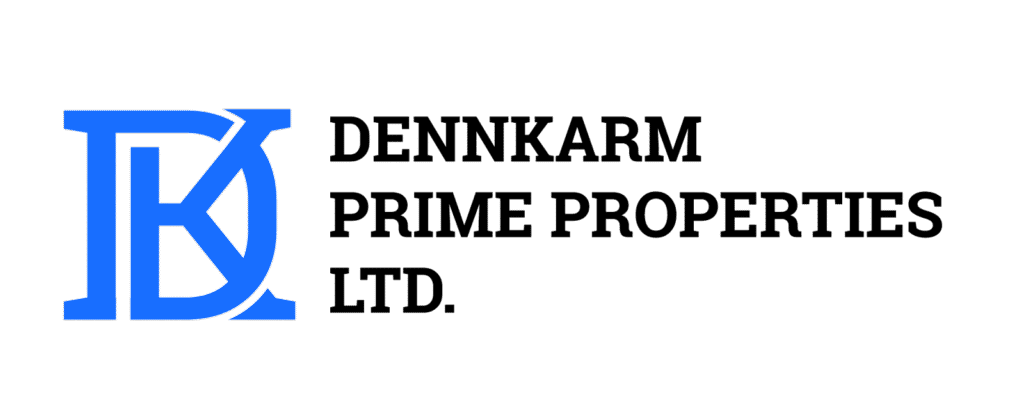1. Introduction: The Democratization of Property Investment
For decades, real estate investment in Kenya has been synonymous with high capital outlay, illiquidity, and the complexities of direct property management. This barrier to entry kept the average investor away from one of the most reliable wealth-building sectors. However, the introduction of Real Estate Investment Trusts (REITs) has fundamentally changed this landscape. REITs are regulated investment vehicles that allow both individual and institutional investors to pool their capital to acquire or develop large-scale, income-generating real estate assets.
The Kenyan REITs market, governed by the Capital Markets Authority (CMA) under the Capital Markets (Real Estate Investment Trusts) (Collective Investment Schemes) Regulations, 2013, has emerged as a crucial democratizing force in the property sector. By transforming traditionally illiquid assets into publicly tradable units, they offer unparalleled accessibility, diversification, and liquidity. As of 2025, with increasing investor sophistication and a growing portfolio of offerings, the Kenyan REIT sector—featuring key players like ILAM Fahari I-REIT, Acorn I-REIT, and Acorn D-REIT—presents 7 Amazing Opportunities for the prudent, long-term investor.
2. Table of Contents
- Introduction: The Democratization of Property Investment
- Table of Contents
- Understanding the Two Key Pillars: I-REITs and D-REITs 3.1. Income REITs (I-REITs) 3.2. Development REITs (D-REITs)
- The 7 Amazing Opportunities in Kenyan REITs 4.1. Accessibility and Lower Capital Barrier 4.2. Mandatory Dividend Payouts: Consistent Passive Income 4.3. High Liquidity Compared to Direct Property 4.4. Professional and Diversified Management 4.5. Significant Tax Efficiency 4.6. Exposure to Mega-Growth Sectors (e.g., Student Accommodation) 4.7. Capital Appreciation Potential
- A Deep Dive: Performance of Key Kenyan REITs in H1 2025 5.1. ILAM Fahari I-REIT Performance Overview 5.2. Acorn Student Accommodation I-REIT (Acorn I-REIT) 5.3. Acorn Development REIT (Acorn D-REIT)
- The Regulatory Landscape in 2025: Key Guardians and Frameworks 6.1. Roles of the CMA, Trustee, and REIT Manager 6.2. The Investment Process: A Step-by-Step Guide
- Integrating Strategic Land Investment with Dennkarm Prime Properties
- Challenges and Risks to Consider Before Investing
- More Information: Resources for Deeper Understanding
- Call to Action: Start Your Investment Journey Today

3. Understanding the Two Key Pillars: I-REITs and D-REITs
Kenya’s regulatory framework for REITs clearly distinguishes between two main types, catering to different investor risk profiles and return expectations:
3.1. Income REITs (I-REITs)
I-REITs (e.g., ILAM Fahari I-REIT, Acorn I-REIT) are structured to acquire and own fully developed, income-generating real estate assets. Their primary source of revenue is the rent collected from these stable, operating properties (like commercial offices, shopping malls, or student housing).
- Investor Profile: Best suited for investors seeking regular, predictable income and lower risk.
- Return Mechanism: Distributions primarily from net rental income. Kenyan law mandates that REITs distribute at least 80% of their net after-tax profits as dividends to unit holders.
- Asset Type: Stabilized properties with high occupancy rates.
3.2. Development REITs (D-REITs)
D-REITs (e.g., Acorn D-REIT) are designed to raise capital specifically for the acquisition of eligible real estate, undertaking development, and managing construction projects. They finance the development of new real estate, often with the intent to sell the completed properties or convert the D-REIT into an I-REIT upon stabilization.
- Investor Profile: Attracts investors with a higher risk tolerance seeking higher, long-term capital appreciation from successful project completion. They are generally only offered to professional investors who understand the inherent development risks.
- Return Mechanism: Returns are realised from the eventual sale of completed properties and, sometimes, rental income from a small pool of operational properties before the full exit.
- Asset Type: Land and properties under development or construction.
4. The 7 Amazing Opportunities in Kenyan REITs
Investing in Kenyan REITs in 2025 is a strategic move due to several compelling advantages that overcome the traditional hurdles of property ownership:
4.1. Accessibility and Lower Capital Barrier
Unlike direct real estate, which often requires millions of shillings for a down payment, REIT units are typically traded on the Nairobi Securities Exchange (NSE) or the Unquoted Securities Platform (USP). This lowers the financial barrier significantly, allowing investors to enter the market with manageable amounts, sometimes as low as a few thousand shillings.
4.2. Mandatory Dividend Payouts: Consistent Passive Income
The legal requirement for REITs to distribute at least 80% of their net taxable income as dividends makes them a prime source of passive income. This structure provides investors with a steady cash flow, which is a major draw for retirees and income-focused portfolios. For example, both Acorn I-REIT and ILAM Fahari I-REIT consistently propose distributions, reflecting their focus on generating rental income.
4.3. High Liquidity Compared to Direct Property
The most notable advantage of a listed REIT is its liquidity. Instead of waiting months or years to sell a physical property, REIT units can be bought and sold relatively quickly on the stock exchange (or USP). This allows investors to access their capital when needed, which is a key differentiator from traditional real estate.
4.4. Professional and Diversified Management
REITs are managed by a team of licensed professionals—the REIT Manager and the Trustee. The REIT Manager handles day-to-day operations, including tenant relations, property maintenance, and acquisitions, while the Trustee safeguards the assets on behalf of unit holders. Furthermore, a single REIT typically holds a portfolio of multiple properties across different sub-sectors (e.g., student housing, commercial offices), offering instant diversification and reducing exposure to the risk of a single property failing.
4.5. Significant Tax Efficiency
Registered REITs are a highly tax-efficient structure. They are generally exempt from corporate income tax at the trust level, with tax typically only applied at the investor level (via withholding tax on dividends). Crucially, the instruments used in the transfer of property to a listed REIT are often exempt from stamp duty, which can amount to significant savings and boost overall investor returns.
4.6. Exposure to Mega-Growth Sectors (e.g., Student Accommodation)
REITs, particularly those launched by Acorn, have strategically focused on the purpose-built student accommodation (PBSA) sector. This niche market taps into the high, sustained demand from Kenya’s large student population, offering a specialized investment play on a key long-term growth theme, providing returns that are often counter-cyclical to the broader property market.
4.7. Capital Appreciation Potential
Beyond the dividend income, the value of the REIT’s underlying assets—the real estate properties—can appreciate over time due to market trends, inflation, and strategic property enhancement. This appreciation is reflected in the REIT’s Net Asset Value (NAV) per unit, offering investors the potential for significant long-term capital gains alongside their regular dividend income.
5. A Deep Dive: Performance of Key Kenyan REITs in H1 2025
The performance of Kenyan REITs in the first half of 2025 (H1 2025) demonstrates the varied risk/return profiles of the different types of trusts.
5.1. ILAM Fahari I-REIT Performance Overview
ILAM Fahari I-REIT remains a benchmark as the first listed REIT in Kenya. As an I-REIT, its stability is paramount. While trading at a unit price of around KES 11.00 as of October 2025, its performance has historically reflected the challenges of the broader commercial real estate sector. Its income remains critical to its distributable earnings, which are its main attraction.
5.2. Acorn Student Accommodation I-REIT (Acorn I-REIT)

The Acorn I-REIT has shown a positive trajectory, focusing on its specialized PBSA portfolio. Its reliance on consistent rental income from purpose-built student housing gives it a resilient income stream. The I-REIT’s manager has consistently proposed distributions, with total distributions showing a growth trend, reflecting strong demand and rental escalations in the student accommodation sector.
5.3. Acorn Development REIT (Acorn D-REIT)
The Acorn D-REIT is a prime example of a growth-focused vehicle. Its performance is tied to the successful completion and disposition of development projects. In H1 2025, the D-REIT continued to post strong results tied to project valuations and eventual sales to the I-REIT. This type of REIT typically has a greater debt component, as seen in its leverage ratios, which increase to finance the construction activities. While its rental income may fluctuate during the development phase, its potential for substantial capital gains upon project completion is its key selling point.
6. The Regulatory Landscape in 2025: Key Guardians and Frameworks
A well-defined regulatory structure underpins the safety and transparency of the Kenyan REIT market.
6.1. Roles of the CMA, Trustee, and REIT Manager
- Capital Markets Authority (CMA): The chief regulator, licensing and overseeing the REITs, their managers, and trustees, ensuring compliance with the regulations and protecting investor interests.
- REIT Manager (e.g., Acorn Investment Management): A licensed corporate entity responsible for the day-to-day management of the REIT’s assets, portfolio strategy, and operational activities.
- Trustee (e.g., KCB, Co-operative Bank): A licensed corporate entity responsible for holding the REIT’s assets (the properties) on behalf of the unit holders. Their primary role is to ensure the REIT Manager acts in the best interest of the investors and that investments comply with the Trust Deed.
6.2. The Investment Process: A Step-by-Step Guide
- Research and Due Diligence: The prospective investor must thoroughly research the specific REIT (I-REIT or D-REIT), reviewing its prospectus, asset portfolio, performance history, dividend policy, and the reputation of the REIT Manager.
- Open an Investment Account: For listed REITs, this involves opening a Central Depository System (CDS) account with a licensed stockbroker at the Nairobi Securities Exchange (NSE).
- Fund the Account: Deposit the desired investment capital into the CDS account.
- Place a Buy Order: Instruct the stockbroker to purchase the desired number of REIT units at the prevailing market price.
- Monitor Performance: Regularly review the REIT’s Net Asset Value (NAV), unit price, and announced distributions.
7. Integrating Strategic Land Investment with Dennkarm Prime Properties
While REITs offer an excellent avenue for liquid, passive income from established property assets, many investors still seek the high capital appreciation and direct control offered by land ownership. This is where a strategic partnership with a reliable land firm like Dennkarm Prime Properties becomes invaluable.
Dennkarm Prime Properties offers pre-vetted, high-potential land parcels in strategic growth corridors, such as Thigio in Kikuyu. These areas are positioned to capitalize on future infrastructure development and urban decentralization.
Dennkarm’s Role in a Diversified Real Estate Portfolio:
- Complementary Growth: Investing in a D-REIT gives exposure to large-scale, diversified development profit. Simultaneously, acquiring a secure, titled plot from Dennkarm Prime Properties allows the investor to capture individualized, high-leverage capital growth tied to specific location-based appreciation.
- De-Risking Direct Investment: Dennkarm mitigates the primary risk of direct land ownership—fraudulent titles—by providing a robust, professional due diligence process, often utilising digital platforms like Ardhisasa for verification, ensuring the land you acquire is clean and secure.
- Future Development Potential: A parcel of land from Dennkarm can serve as the foundation for a future development project, providing maximum control over the asset’s final value, an opportunity not available in a pooled fund like a REIT.
8. Challenges and Risks to Consider Before Investing

While REITs are an attractive option, they are not without risk:
- Market Liquidity: While generally more liquid than direct property, the REIT market on the NSE/USP is still nascent. Trading volumes can be low, which might make it difficult to quickly exit a position without impacting the unit price.
- Valuation Discrepancies: A REIT’s unit price can sometimes trade at a discount to its Net Asset Value (NAV), meaning investors might be forced to sell for less than the theoretical value of the underlying assets.
- Sector-Specific Risk: For a specialized REIT like Acorn’s, poor performance in the student accommodation sector (e.g., due to university closures or shifts in student preferences) could negatively impact the entire portfolio.
- Interest Rate Fluctuations: Rising interest rates can increase a REIT’s borrowing costs (especially a D-REIT) and make fixed-income alternatives (like bonds) more attractive, which can lead to a decline in REIT unit prices.
9. More Information: Resources for Deeper Understanding
For investors seeking a richer understanding of the regulatory environment and current performance metrics, the following resources are recommended:
- Capital Markets Authority (CMA) Kenya: For the official REIT Regulations and updates on licensed entities.
- Nairobi Securities Exchange (NSE): For daily unit price and trading volume data for listed REITs.
- Cytonn Reports on Kenyan REITs: For in-depth, semi-annual analyses of key performance indicators (NOI, FFO, CAD) and market comparisons.
- Annual and Half-Year Financial Reports: Directly available from the REIT Manager websites (e.g., Acorn Holdings, ILAM Fahari) for a granular view of their financial health.
- 5 Best Ways to Finance Land in Kenya
- Ministry of Lands and Physical Planning – Visit Here
10. Call to Action: Start Your Investment Journey Today
Whether you choose the pooled, income-focused stability of a Kenyan I-REIT or the high-growth potential of strategic land investment, the time to build your real estate portfolio is now.
For Direct Land Investment and Due Diligence, Partner with:
Call Us: 0722-45-45-18 / 0101-45-45-00.
Email Us: info@dennkarmproperties.com




